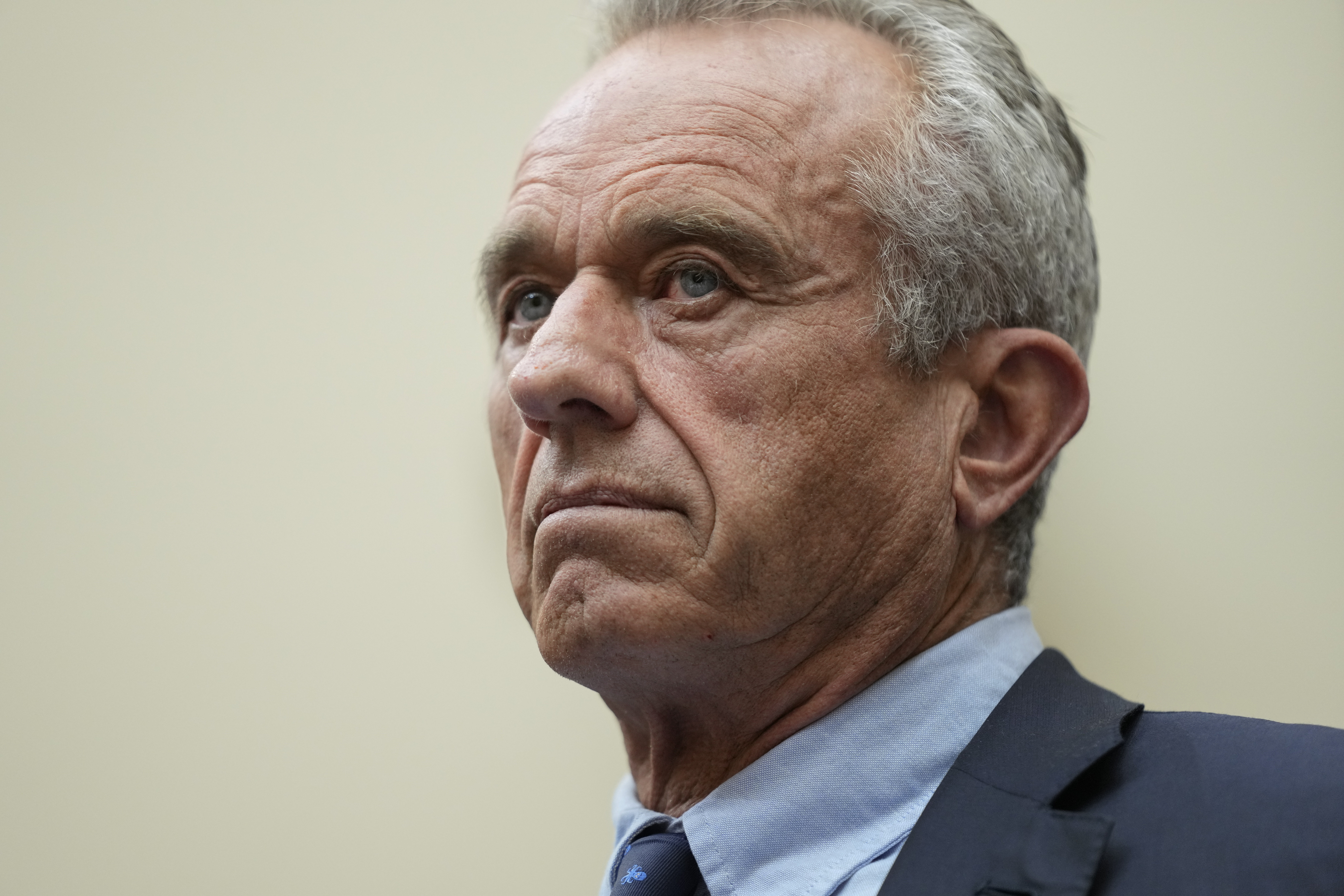
A federal judge on Wednesday denied a request from Robert F. Kennedy Jr. to temporarily restrain Google from removing two videos of the presidential candidate as he seeks to sue the company for censorship.
U.S. District Judge Trina Thompson, an appointee of President Joe Biden, wrote that Kennedy’s claim that the company violated his First Amendment rights is unlikely to succeed because Google is a private entity. Thompson also wrote that a restraining order was not necessary because he would not be irreparably harmed if the order was not granted.
“Plaintiff has not shown circumstances warranting the extraordinary remedy of a temporary restraining order,” Thompson said in her 11-page decision, issued following a hearing on Monday. “The Court finds that the First Amendment claim is unlikely to succeed on the merits because Google and YouTube are not state actors.”
In his suit, Kennedy claimed Google has engaged in censorship under the coercion of federal government officials. YouTube, which is owned by Google, had removed videos of Kennedy making what the company said were medical misinformation claims. The firm contends that the content violated YouTube’s policy against discussing the Covid-19 vaccines.
While it wasn’t essential to Thompson’s ruling, she also suggested that if the popular video-hosting site were somehow subject to the First Amendment, Kennedy might still have no case because inaccurate information about medical issues lacks free speech protections.
“The coronavirus still poses a health risk to certain individuals, and it would not serve the public interest to let medical misinformation proliferate on YouTube,” the judge wrote, arguing that there is a “public interest of preventing the spread of illness and medical misinformation.”
Kennedy, who is running a long-shot campaign to usurp Biden as the Democratic presidential nominee next year, has broken into media headlines by going against mainstream liberal viewpoints on Covid-19 policies and vaccines. He has been adamant that big technology companies have gone too far in their role moderating content, leaning into the conservative viewpoint that removal of content deemed misinformation equates to censorship.
He testified before Rep. Jim Jordan’s (R-Ohio) subcommittee examining the weaponization of the federal government in July as part of a monthslong investigation Jordan has been conducting into the alleged collusion between the White House and tech companies to censor individuals online.
For years, major social media platforms have kept open an avenue that allows government officials to submit requests for content moderation. That pathway is currently under legal dispute. A U.S. District Court judge in early July constrained several federal agencies and officials from contacting any social media companies to remove any constitutionally protected free speech, but an appeals court later blocked that order temporarily while it is under dispute.
The Kennedy campaign did not immediately respond to a request for comment.
In its original response to his lawsuit, Google called Kennedy’s censorship lawsuit against the company viewpoints “meritless,” pushing back against the claim that it maliciously removed content that featured his viewpoints on Covid-19 and other medical matters.
“YouTube applies its Community Guidelines independently, transparently, and consistently, regardless of political viewpoint,” Google spokesperson José Castañeda previously told POLITICO. “These claims are meritless and we look forward to refuting them.”
The litigation is expected to continue, with the judge setting the next hearing in the case for Nov. 7.
Josh Gerstein and Rebecca Kern contributed to this report.
from Politics, Policy, Political News Top Stories https://ift.tt/crjYBA6
via IFTTT






0 comments:
Post a Comment